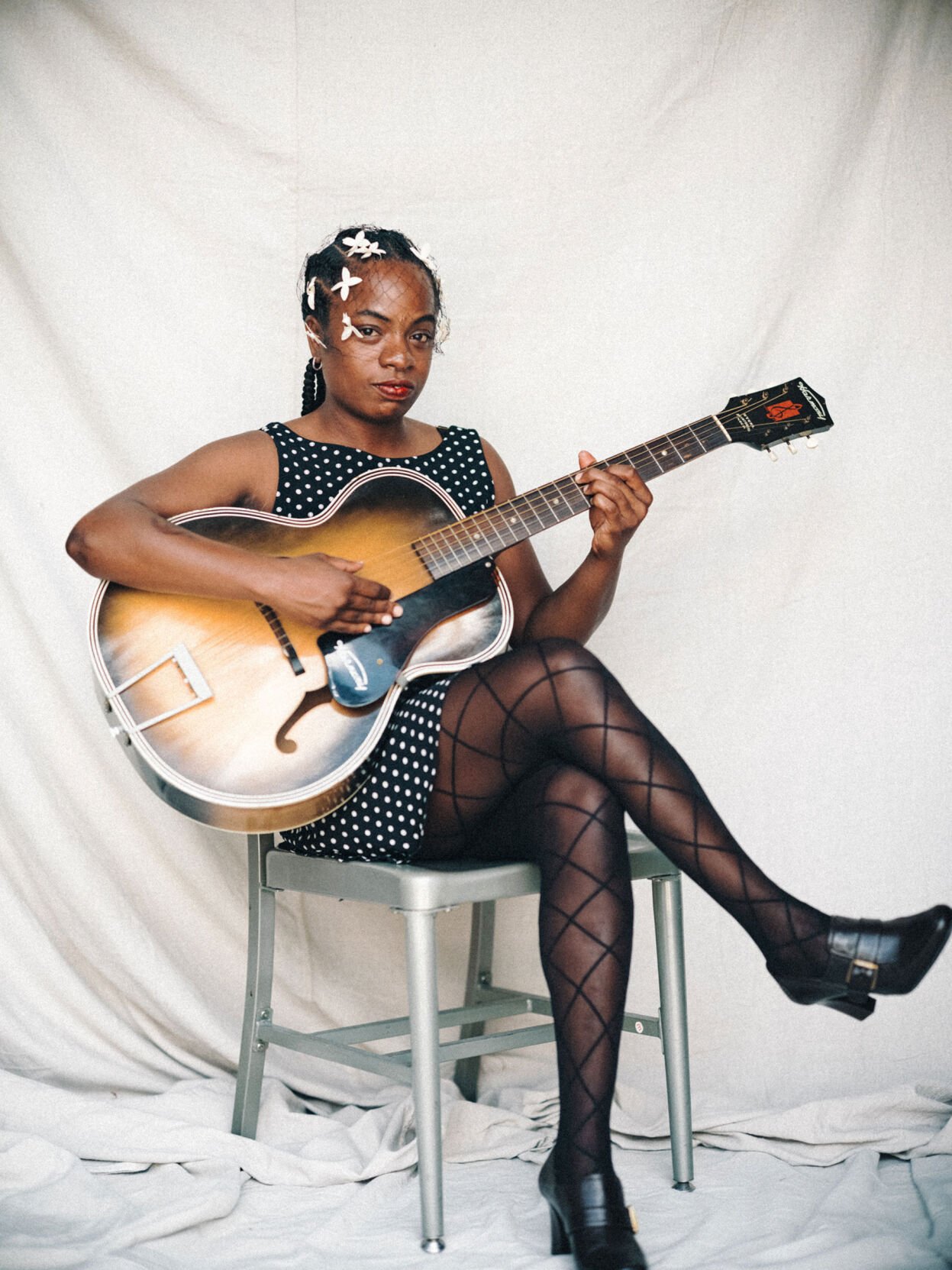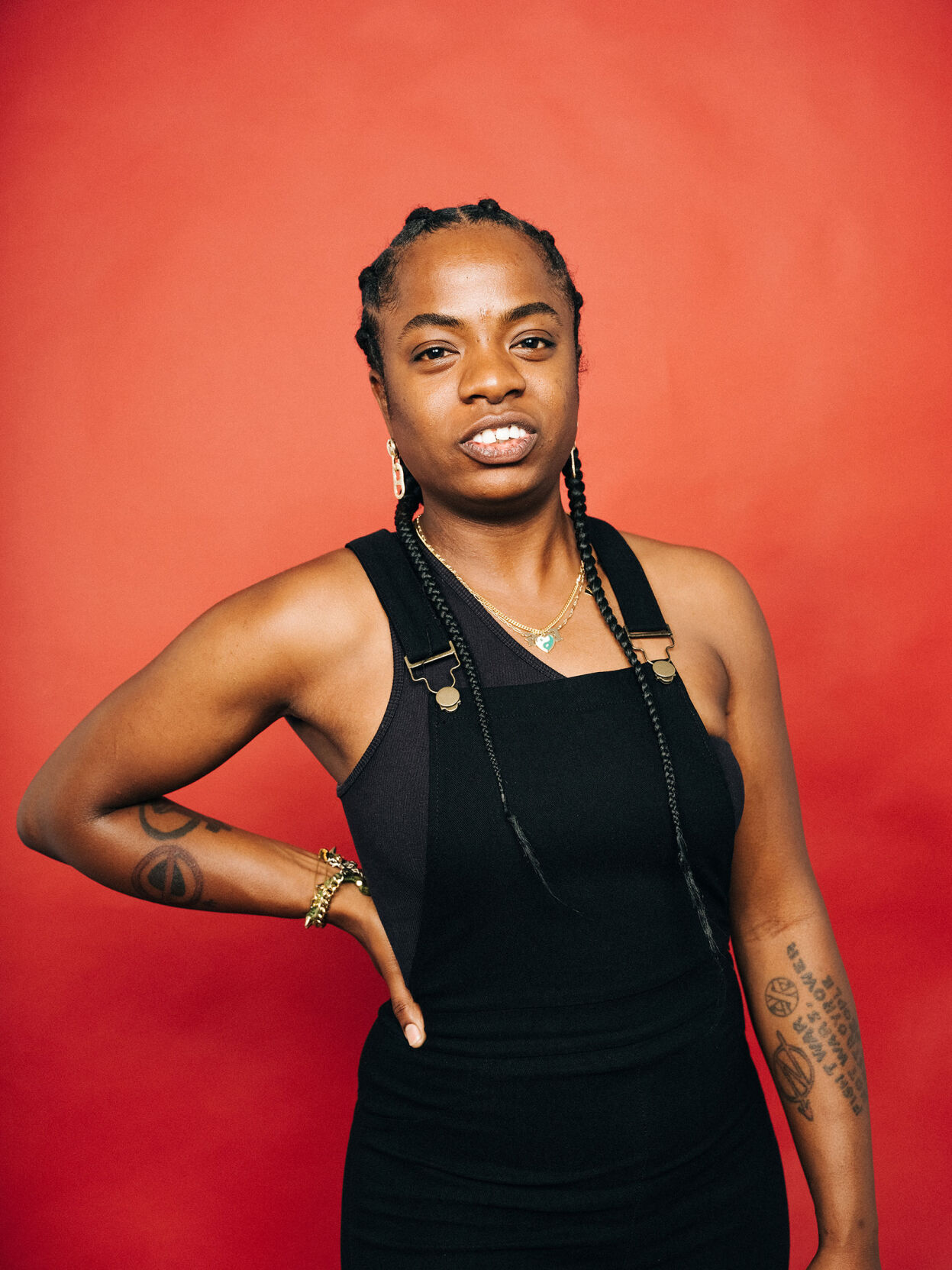
Sunny War
All a title has to do is be functional — give us a little description of a body of work, maybe differentiate it from other works that are somehow related. Singer-songwriter Sunny War, however, is out here throwing brain-bombs with her latest album Anarchist Gospel. Is she talking about Bibles in little leather jackets? Or punk kids retelling the story of Jesus throwing the moneylenders out of the temple? Or perhaps something bigger, more radical, more mysterious? The songs only hint at answers, which is a testament to War’s immense skill as a writer and craftsperson, a sculptor of vibes.
War was born in Nashville, and moved often with her mother. As a teenager in Los Angeles, she struggled with addiction; she left home while still a minor and experienced homelessness for a time. She also found her love — and phenomenal talent — for music, and during recovery and beyond, she developed a style that draws on the immediacy of old-school folk and punk and effectively blurs distinctions between traditions including blues and country. Anarchist Gospel reflects on recent phases of her life, finding lessons in a messy tangle of emotions and rendering them with expert precision. She recently returned to Music City for a short spell; she has since shifted home bases again to Chattanooga.
“It’s been interesting,” War says of her recent relocations. “I think I was pretty sad when I got to Nashville. And then I got sadder, and now I’m on the other side of that. And it’s more like, really great now.”
While in town, she recorded Anarchist Gospel, released in February by New West, with outstanding producer-engineer Andrija Tokic and a broad array of badass musicians. She’s now deep into the sort of intense touring that comes with being an artist on the cusp of the mainstream, and we’re catching up by phone ahead of a return visit to Nashville on Friday at Eastside Bowl.
“After we recorded, my dad died,” War continues. “But he was living in Chattanooga, and it was just so weird because, besides recording in Nashville, I was moving there to be closer to my dad’s side of the family. … But then the good stuff that came out of it, like me and my brother — a half-brother who I didn’t grow up with — we had to come together to deal with my dad’s passing. And now we have a really strong relationship.”
War moved into her late father’s house, but notes that she still comes a couple hours up the interstate to visit Nashville regularly. “I feel like I’ve met a lot of musicians that I look up to,” she says, “and now it’s like, we talk on the phone, and I see ’em in Nashville, and it feels, like, right.”
Not a small number of those folks play on the album. Percussionist Megan Coleman and bassists “Little Jack” Lawrence and Dennis Crouch build a foundation for the organic grooves that come rippling out of War’s understatedly mesmerizing guitar work. Local dynamo Allison Russell and California songsmith Chris Pierce contribute to several tracks; other guests include My Morning Jacket’s Jim James and Micah Nelson — a son of Willie, alias Particle Kid, who released a split LP with War in 2018 called Particle War.

Sunny War
“Everything was good, so it was like, ‘But what’s your favorite?’ — especially with Allison Russell,” says War. “We kind of liked everything, so it was just sort of, ‘Well, what do we like the best?’ It was never like, ‘Can you do it like this?’ … So we had to kind of choose what parts we were going to use. Turned out to be really hard.”
Standout track “No Reason” drives and rings, evoking early rock ’n’ roll energy in the vein of Sister Rosetta Tharpe. In it, War examines the ongoing struggle to find your better self in an imperfect world filled with imperfect people. The theme reappears in the next song “Shelter and Storm.” While folkster David Rawlings peels off ominous fingerpicked riffage, War sings: “For your life, you must fight, reach out for your mother’s hand / All our wrongs, we must right or drown in her sinking sand.”
As War writes her way through an array of personal and social spaces in Anarchist Gospel, she creates a document of artistic maturity that rides waves of tumult with calm detachment. With her collaborators’ help, she even slips in a couple of covers — Van Hunt’s “Hopeless” and Ween’s “Baby Bitch,” the second of which War mutates from a bit of borderline misogynist juvenilia into an opportunity for thoughtful self-examination.
In a way that mirrors many other changes she’s made in her life, War even altered the way she does demos. Tokic is known for being well-prepared, so she revised and revised her drafts before meeting up with him for pre-production, as opposed to rolling with off-the-cuff vocals-and-guitar voice memos.
“I get frustrated working on one song if I can’t make it work — and then I just, like, go to something else for a while. I might go to work on other stuff for like a month if I have to, and then come back when I’m not, like, mad at a song anymore. [Laughs] But I [still] get mad at songs, I guess.”




